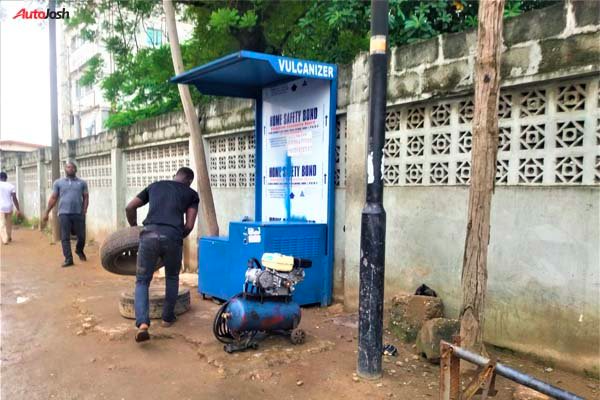How do you assign a Credit Score to Ugochukwu? Ugochukwu is a roadside vulcanizer who has never owned a bank account or a mobile account/wallet. He needs N150,000.00 (less than $400) to pay a year’s house rent for his family of five.
To put this in context, Ugochukwu, like most other vulcanizers in Lagos, charges N200.00 to pump a flat car-tire. An average vulcanizer pumps at least 50 car-tires each day, which amounts to N10,000.00 (about $25). With other added services, such as car-tire patches, some vulcanizers make even much more.
With carefully planned daily deductions over a defined period, Ugochukwu’s business can repay the loan. This is not the case, however, as he will almost certainly not get the loan that he so desperately needs. Our traditional financial institutions, fintech companies, and even most microfinance banks do not deliberately design products for persons like him. Prospects like Ugochukwu have no semblance to the preferred financial client. Ugochukwu cannot provide sales records, bank statements, payslips, collateral, Inventory Records, list of off-takers, guarantors, etc. The list is endless.
The truth is, it is a no-brainer that it is easier to provide financial services to the so-called working middle class and anyone above that line, compared to persons at the bottom of the pyramid.
Tackling the problem of our roadside vulcanizer, and many in similar situations require challenging conventional thinking, finding complementary partners, and the willingness to undertake continuous experimentation.
Delivering service to Ugochukwu requires that one starts with recruiting social-profit-oriented Shareholders without whom you cannot build new Value Propositions. Essentially, your Shareholders should become more like Stakeholders who are equally concerned and share the same Social Values as you.
Much more than other organizations, socially-minded financial institutions should ensure every move it makes has the customer at its center: in product conceptualization, design, and delivery. We cannot serve the same “tested” products or employ the same financial delivery strategies in serving customers like Ugochukwu. They deserve their day under the yellow African sun; maybe that day is upon us.
High-sounding strategies, elaborate financial analysis, and bright lights will do Ugochukwu no good if we don’t thoroughly understand his pain points and how to creatively navigate him out of poverty.
It is no surprise that, according to Deloitte, client-centered companies are 60% more profitable compared to companies not focused on their customers.
